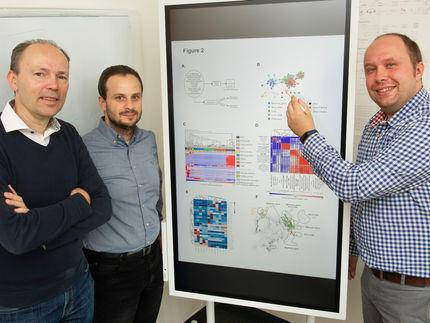Earlier unknown molecular-level mechanism may contribute to the growth rate of breast cancer
Researchers at VTT Technical Research Centre of Finland, the University of Turku and the University of Oslo have discovered a previously unknown molecular-level mechanism that may partly explain the increased growth of cancer cells. The study, published in the British Journal of Cancer, showed that high levels of miRNA-378a-5p molecule cause cell division anomalies. This renders the number of chromosomes in cancer cells abnormal, which is known to promote growth and the spread of cancer. In addition, the researchers discovered that elevated miRNA378a-5p levels in breast cancer patients correlate with the most aggressive forms of cancer. The objective is to develop new diagnostic methods for breast cancer on the basis of the research results
MicroRNAs are small intracellular RNA molecules that regulate gene expression. Therefore, they play important roles in various normal processes of the human body, such as embryogenesis, and the regulation of cell viability. In addition, it is known that abnormal amounts of microRNA stimulate the onset and development of different diseases, such as cancer.
The objective of the research project lead by Marko Kallio, Principal Scientist at VTT, was to identify novel microRNAs participating in the regulation of cell division among the over 1000 microRNAs found in human. In the study it was found that elevated miR-378a-5p levels perturb mitotic fidelity, which is known to be one of the factors promoting the generation, growth and spread of cancer.
The researchers also succeeded in discovering a molecule-level mechanism that can explain the observed chromosome changes caused by over-expression of miR-378a-5p; excess of this particular microRNA in cancer cells leads to significant suppression of Aurora B kinase, which is an essential protein needed for faithful cell division. In addition, over-expression of miR-378a-5p was found to reduce the sensitivity of cancer cells to paclitaxel treatment and to activate certain cell surface receptors, which transmit signals regulating, for example, angiogenesis. The observation concerning activation of receptors is consistent with a Canadian study published earlier showing that over-expression of miR-378a-5p stimulates neovascularization in tumours.
In addition to the new observations concerning pathogenesis of cancer and drug response of cancer cells, the Finnish-Norwegian study is also significant due to the research results obtained from the tumours of breast cancer patients. Elevated miR-378a-5p levels were detected particularly in the most aggressive grade 3 breast tumours, which have poor patient outlook. In the future, the research group will attempt to verify the results in a more extensive patient study, with the additional objective of developing new diagnostic methods based on the expression of microRNA molecules.
The results of the research project headed by Dr. Kallio give new perspectives on earlier microRNA studies, and reinforce the theory that cancer cells take advantage of microRNA molecules when striving to multiply and spread. In case of the miR-378a-5p, its over-expression in cancer tissue may stimulate angiogenesis in tumours, enhance the energy metabolism of cancer cells, reduce the sensitivity of cancer cells to paclitaxel therapy, and induce chromosome changes, that all help cancer gain growth advantage.
Most read news
Organizations
Other news from the department science

Get the analytics and lab tech industry in your inbox
By submitting this form you agree that LUMITOS AG will send you the newsletter(s) selected above by email. Your data will not be passed on to third parties. Your data will be stored and processed in accordance with our data protection regulations. LUMITOS may contact you by email for the purpose of advertising or market and opinion surveys. You can revoke your consent at any time without giving reasons to LUMITOS AG, Ernst-Augustin-Str. 2, 12489 Berlin, Germany or by e-mail at revoke@lumitos.com with effect for the future. In addition, each email contains a link to unsubscribe from the corresponding newsletter.
























































